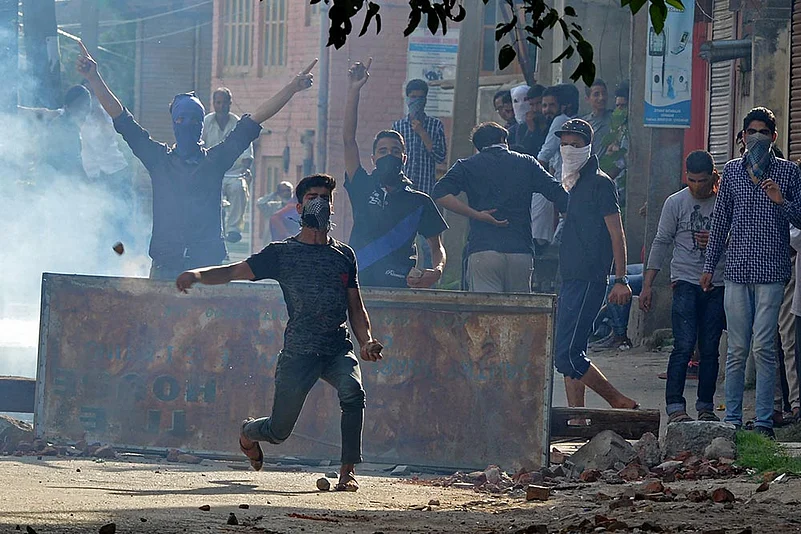The recent statements by PM Narendra Modi indicating his desire to see a better future for the Kashmiris is in line with earlier assertions by politicians that promise the world but are of little relevance in addressing the core issues of concern. Neither has summoning the Pakistani high commissioner to South Block had any effect on his country’s deep state. There is thus an urgent need for a realistic approach on how to deal with the Kashmir issue. The current crisis in the Valley following the death of Burhan Wani is quite clearly a case of shoddy handling of a situation, the consequences of which should have been anticipated by anybody with some understanding of the mood and the situation.
Having rode to power on an anti-India sentiment, which also led to the creation of a new breed of militants such as Burhan, CM Mehbooba Mufti and her allies in New Delhi were found out of their depth as the situation unfolded. For too long, New Delhi has focused on dealing with one or the other Kashmiri ally in power, and when things spin out of control, the response of Indian politicians and bureaucrats in Delhi and Srinagar is “What else can we do?”
The BJP-led central government must put its electoral ambitions aside to pull up the PDP-BJP dispensation in Kashmir. It must also launch a social media campaign to counter the propaganda of anti-India forces in the Valley and their Pakistani mentors, challenging their narrative by pointing out our neighbour’s failure to implement the UN resolutions, never mind South Block’s fear that raking it up would internationalise the Kashmir issue and open a can of worms.
Secondly, New Delhi must live up to its public commitments of funding initiatives in J&K that would give it the clout to bargain from a position of strength.
Once these new terms of reference are adopted, New Delhi must then go the full hog in getting the world to declare Pakistan a state sponsor of terrorism. So far, despite Modi’s speeches across the world, one cannot recall him making more-than-oblique references in public forums that Pakistan is a state sponsor of terror. Sadly, there are many in the government who are determined to engage with Nawaz Sharif and his tattered civilian government (even by covertly keeping it alive, I am told) to engage in a false dance of democracies, even with the Pakistan army and its chief General Sharief getting more assertive on India. It is anybody’s guess when the army could soon be back in power.
Modi and his advisors must admit the Pakistan army needs hostilities with India for its own preeminence in the Pakistani structure, hence the focus on Kashmir. Also, the only lasting arrangements between India and Pakistan are the ones signed by their army, such as the CFL and LOC agreements and the Indus Waters Treatment. Ignoring them wouldn’t take them away from the discourse over Kashmir.
Sheer ineptitude and lack of imagination dogs New Delhi’s approach to the Kashmir issue. Every time we hope the problem is subsiding, it’s soon back to business as usual, with uninterrupted flow of funds from New Delhi to Kashmiri politicians, in exchange for them making pro-India noises. While the civilians search for solutions, this policy only reinforces failure after failure.
It is, indeed, frustrating to see our security forces used as fodder against militant attacks by government after government. Despite the odds, they have done a fine job. The failure lies with our politicians, in their failure to see the insurgency as a politico-military conflict that cannot just be fought by eliminating the anti-India elements. After all, military force can only ‘contain’ the situation. The civilian leadership must, therefore, use that lull to implement solutions to win hearts and minds.
Since 1990 we have seen the situation stabilise at least thrice, but the policymakers in New Delhi have failed to take advantage of that each time. If we don’t do a course correction, be prepared for another long haul in battling what is India’s problem number one.
(Maroof Raza writes on national security issues.)
Slide Show
On November 2, 1947, Nehru said at Srinagar’s Lal Chowk, “The fate of Kashmir will ultimately be decided by the people...It is not only a pledge to the people of Kashmir but to the world. We...cannot back out of it.”

























